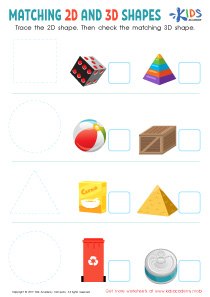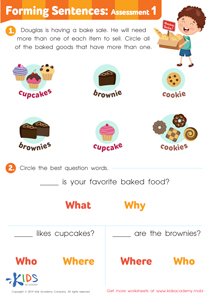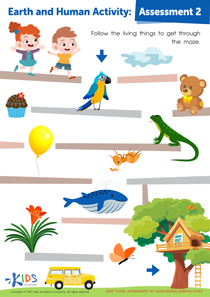Money recognition Extra Challenge Kindergarten Worksheets
4 filtered results
-
From - To
Enhance your kindergarten classroom with our "Money Recognition Extra Challenge Worksheets"! Designed to help young learners master the fundamentals of money, these engaging printables provide varied activities that promote understanding of coin values, simple transactions, and the importance of currency in everyday life. With colorful visuals and age-appropriate tasks, these worksheets encourage students to identify and differentiate between pennies, nickels, dimes, and quarters. Perfect for supplementary practice, the Extra Challenge offers a fun way to reinforce money recognition skills while promoting independence and critical thinking. Download now and watch your students confidently build their financial literacy one worksheet at a time!
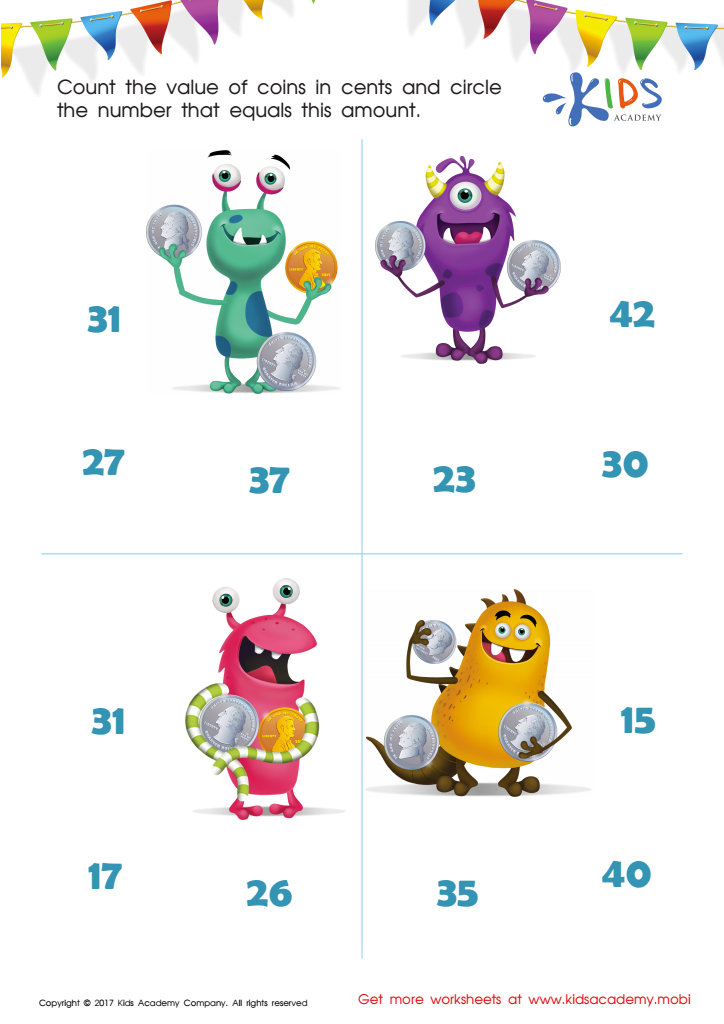

How Many Coins Money Worksheet
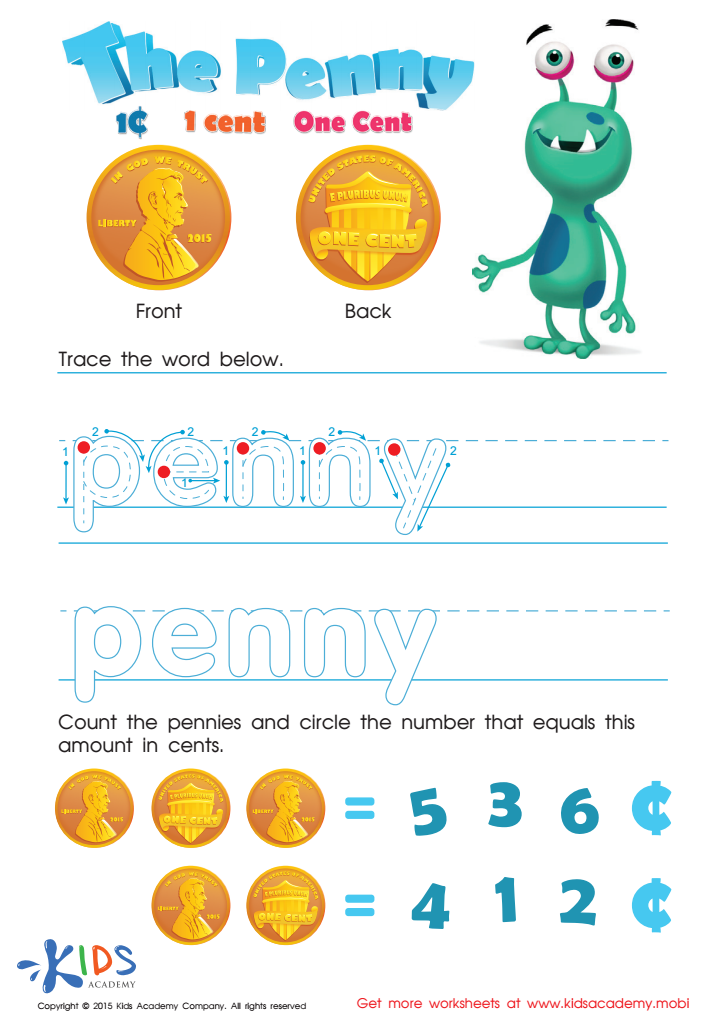

One Cent or the Penny Money Worksheet
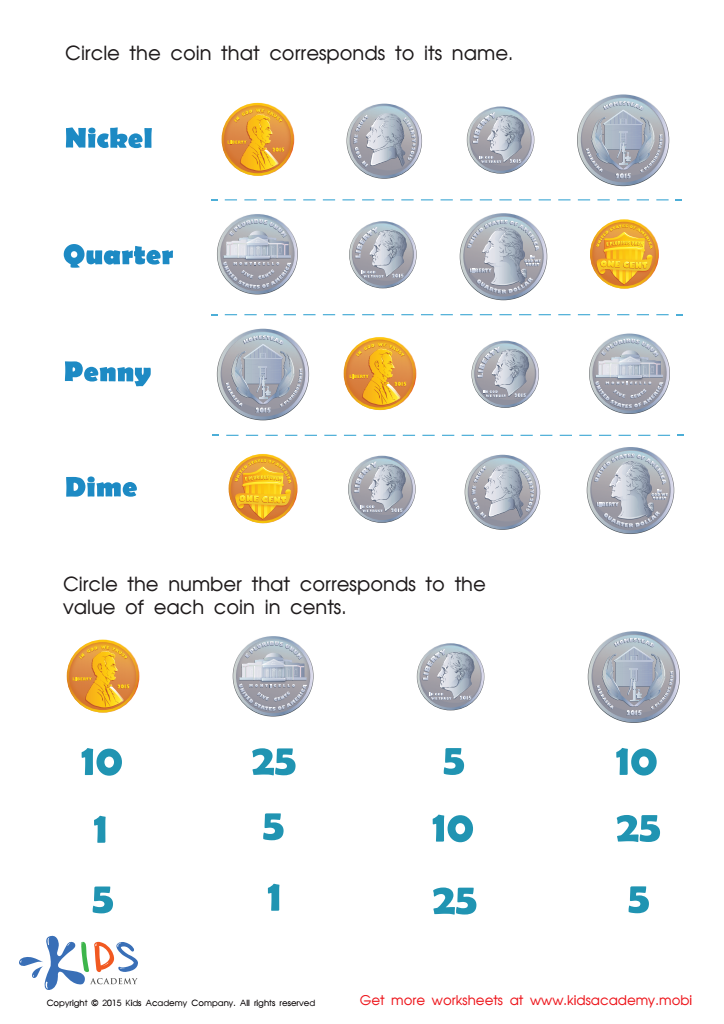

Coin Names and Values Money Worksheet
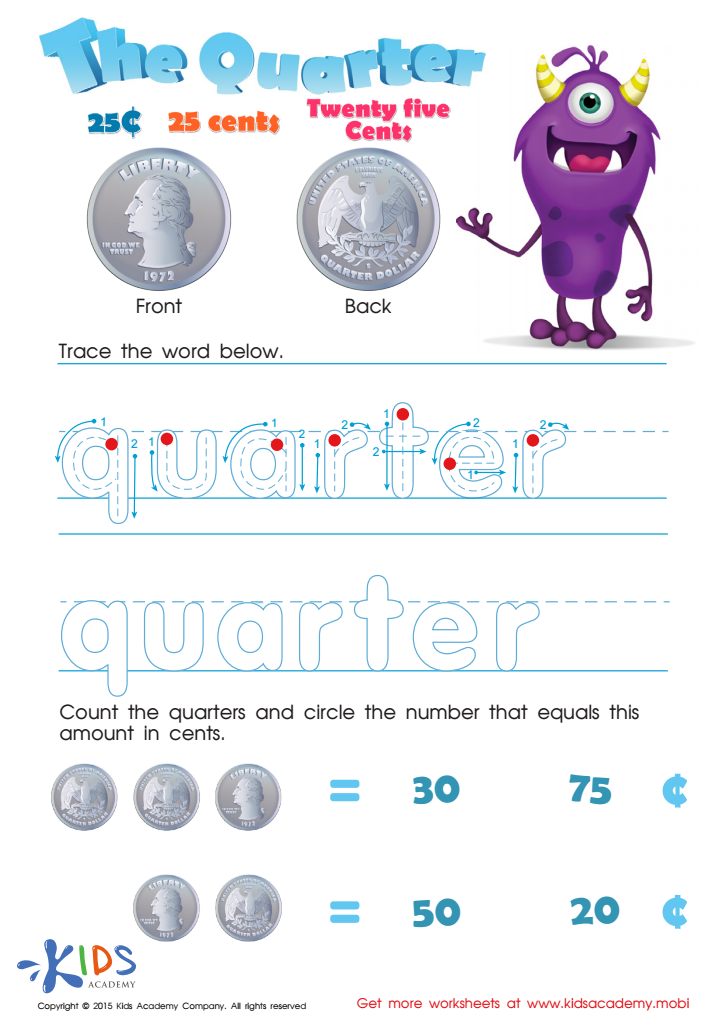

Twenty Five Cents or the Quarter Money Worksheet
Money recognition is a crucial skill for kindergarteners as it lays the foundation for financial literacy. Understanding money helps children grasp basic math concepts such as counting, addition, and subtraction. By learning to recognize different coins and bills, young learners develop problem-solving skills they can apply in real-life situations—like making change or understanding the value of items when shopping.
Additionally, fostering money recognition instills a sense of responsibility and independence. When children comprehend the concept of money, they begin to understand its role in transactions and the importance of budgeting, even at an early age. This knowledge promotes informed decision-making, teaching them the value of saving and spending wisely.
Furthermore, engaging in money recognition activities can be a fun, interactive way for parents and teachers to connect with children. Games like “store” or “grocery shopping” can make learning enjoyable, encouraging collaboration and communication skills. Involving parents in teaching this vital skill can lead to consistent practice at home, reinforcing what is learned at school.
Ultimately, prioritizing money recognition in kindergarten enriches children’s educational experiences and prepares them for future academic pursuits and everyday life challenges. It’s a small investment that yields lifelong benefits.

 Assign to My Students
Assign to My Students









